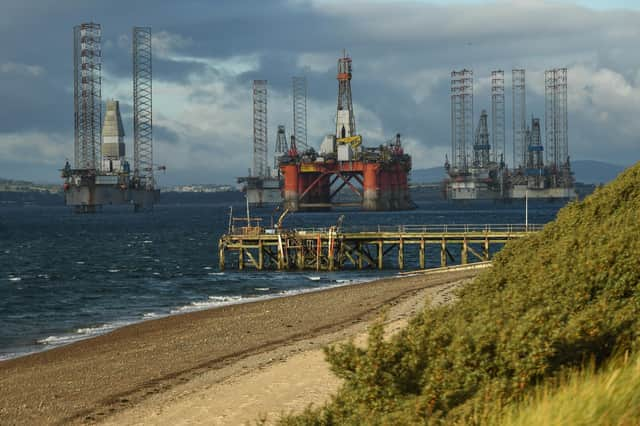Windfall tax rise: Warning over loophole that could cost public purse and spark new North Sea drive for oil and gas


It’s expected that today’s autumn statement will see a hike in the levy imposed on companies reaping bumper rewards from the energy crisis, worth billions of pounds, in a bid to help fill the ‘black hole’ in the country’s coffers.
North Sea industry body Offshore Energy UK, formerly Oil & gas UK, warned that a hike could drive away investors, undermining the UK's energy security and driving up imports.
Advertisement
Hide AdAdvertisement
Hide AdEnvironmentalists, meanwhile, welcomed a tax rise but warned that a loophole which allows companies to offset tax owed against spending on new investments could act as an incentive for them to pursue further fossil fuel projects, at a time when international climate goals are seeking a reduction, and to secure bigger subsidies from UK taxpayers.


A windfall tax aims to target businesses that are benefitting from something they are not responsible for – in this case oil and gas generators, which are earning more money than last year through higher prices, driven by concerns over supplies linked to the war in Ukraine and increased demand following the lifting of Covid restrictions.
Energy firms including BP, Shell, Equinor and Exxon have just reported quarterly profits of around £8 billion – the second highest figure ever.
The current Energy Profits Levy, introduced in May, sees oil and gas generators taxed on 25 per cent of excess profits. However, an investment allowance subsidy was tacked on, which meant that 80 per cent of any investment in North Sea oil and gas can be deducted from their windfall tax bill. If this remains, the government could end up paying more in tax relief than the value of the investment.
It’s thought this will be increased to 35 per cent in the new budget, and the 2025 end date extended to 2028.
Campaigners are calling for the allowance to be removed. “At long last ministers seem to have realised that we need a proper windfall tax on the obscene profits of oil and gas giants,” said Greenpeace UK policy director Dr Doug Par. “But unless the loophole for new investments is removed, this tax risks becoming a giant drilling incentive for these same companies.
“It’s perverse to let oil and gas firms off the hook for investing in more of the climate-wrecking fossil fuels that caused this mess in the first place.”
Uplift, a group pushing for the phase-out of fossil fuels, accused Westminster of “disguising a public giveaway worth millions behind a windfall tax”.
Advertisement
Hide AdAdvertisement
Hide AdScottish Greens MSP Mark Ruskell, the party’s environment spokesperson, has echoed the calls to end the tax allowance and says the licences should also be withdrawn. “The oil and gas giants are making obscene profits at a time when millions of people are being forced to choose between freezing and starving,” he said.
“If the UK government’s climate commitments are to mean anything at all then it must withdraw all new oil and gas exploration licences and put a stop to the damaging policies that have brought us to this point.
“The so-called windfall tax that Rishi Sunak introduced as chancellor was not worthy of the term. Any update on it must remove the climate-wrecking incentives for more drilling that were built in last time.
“We cannot continue like this. Our planet cannot afford it. One of the main reasons for a meaningful windfall tax is that it can be used to fund our transition from fossil fuels to renewables.”
Comments
Want to join the conversation? Please or to comment on this article.